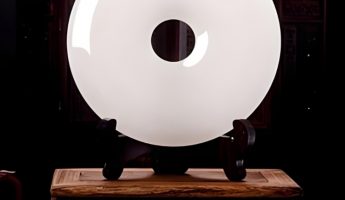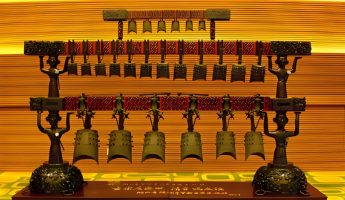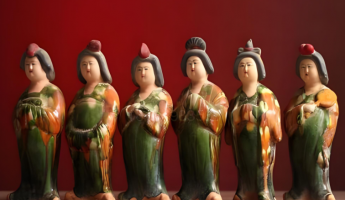Li Yu, born in 937 AD and died in 978 AD, was the sixth son of Li Jing, the ruler of the Southern Tang Dynasty. He was originally named Congjia, with the courtesy name Chongguang, and given the nicknames Zhongyin and Lianfeng Jushi. He came from the Han ethnic group and had a deep ancestral roots, dating back to Pengcheng (now Tongshan District, Xuzhou, Jiangsu). He was also the last monarch in the history of the Southern Tang Dynasty.
In the second year of Jianlong in the Northern Song Dynasty (961 AD), Li Yu inherited the throne and ascended to the throne as emperor, upholding his reverence and respect for the Northern Song Dynasty. He insisted on paying tribute to the Northern Song Dynasty in order to seek national peace. However, as the wheels of history rolled forward, in the deep autumn of October in the fourth year of Kaibao (971 AD), Emperor Taizu of Song, Zhao Kuangyin, eliminated Southern Han in one fell swoop. Faced with this situation, Li Yu resolutely gave up the national title of “Tang” and instead claimed to be the “ruler of Jiangnan”. In the following years, he constantly belittled himself and even dismantled the palace decorations symbolizing imperial power in Jinling (now Nanjing) to express his absolute submission to the Northern Song court.
However, the tide of history was ultimately unstoppable. In the eighth year of Kaibao (975 AD), the Song army was unstoppable, and Jinling City was destroyed. Li Yu was forced to surrender to the Northern Song Dynasty and was subsequently transported to Bianjing (now Kaifeng, Henan). Although he was appointed as the General of the Right Thousand Bulls Guard and given the title of “Marquis of Violation”, he ultimately lost his former freedom and dignity.
On July 7th, in the third year of Taiping Xingguo (978 AD), Li Yu passed away in Bianjing, and later generations revered him as the “Empress of Southern Tang” or “Empress of Li”. Li Yu was not only an emperor, but also a talented artist. He was proficient in calligraphy, skilled in painting, and had a deep understanding of music. He also had profound achievements in poetry and prose creation, with his achievements in ci being particularly outstanding. His poetry not only inherits the graceful style of late Tang Hua Jian School poets such as Wen Tingyun and Wei Zhuang, but also deeply influenced by his father Li Jing and contemporary poet Feng Yansi. His language is fluent and lively, his images are vivid, his emotions are sincere and moving, and his style is unique. Especially his ci works after the collapse of his country and family have a wide range of themes and profound meanings, adding a unique color to the poetry world of the late Tang and Five Dynasties, and having a profound impact on the creation of later poets.



